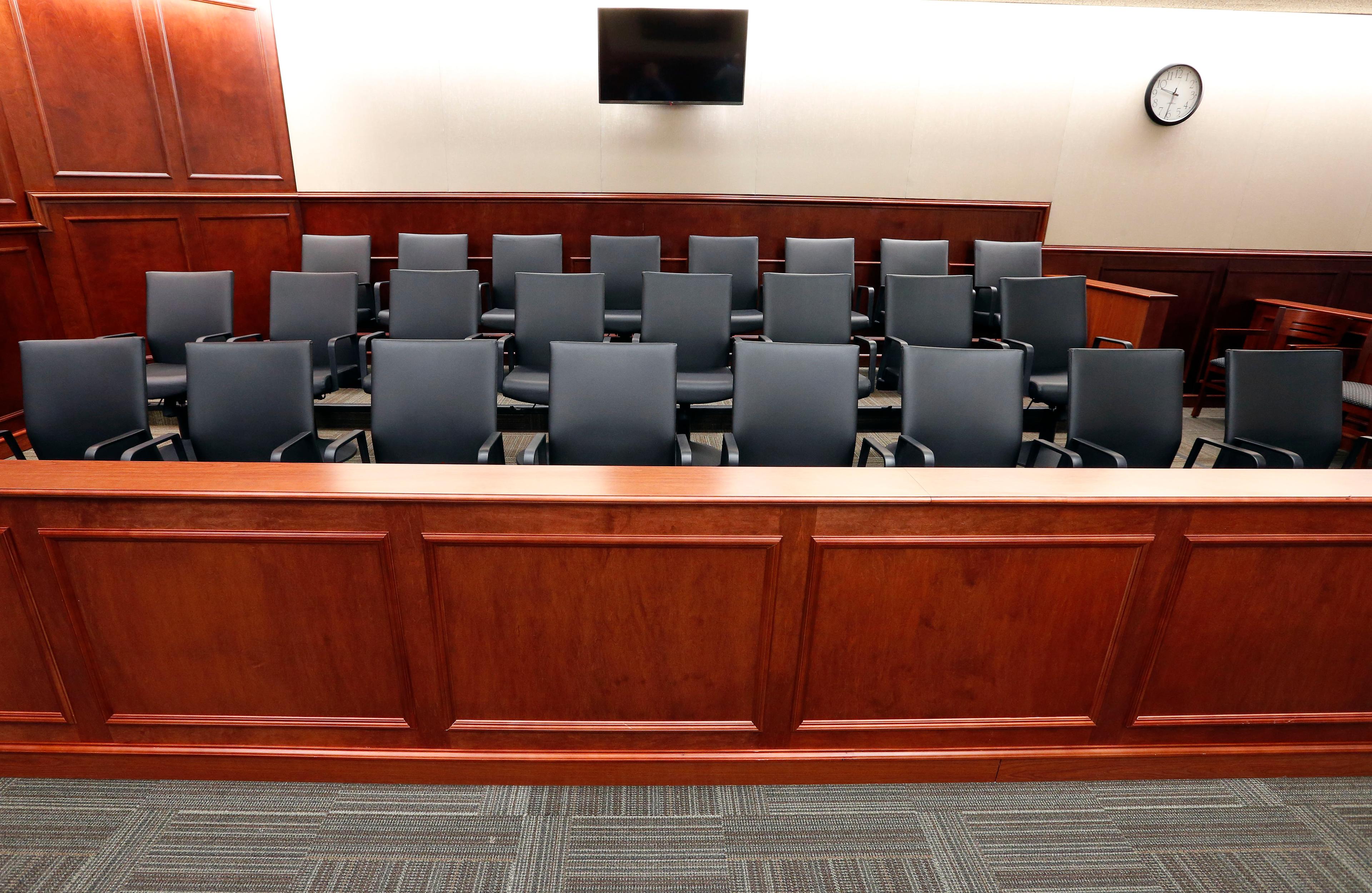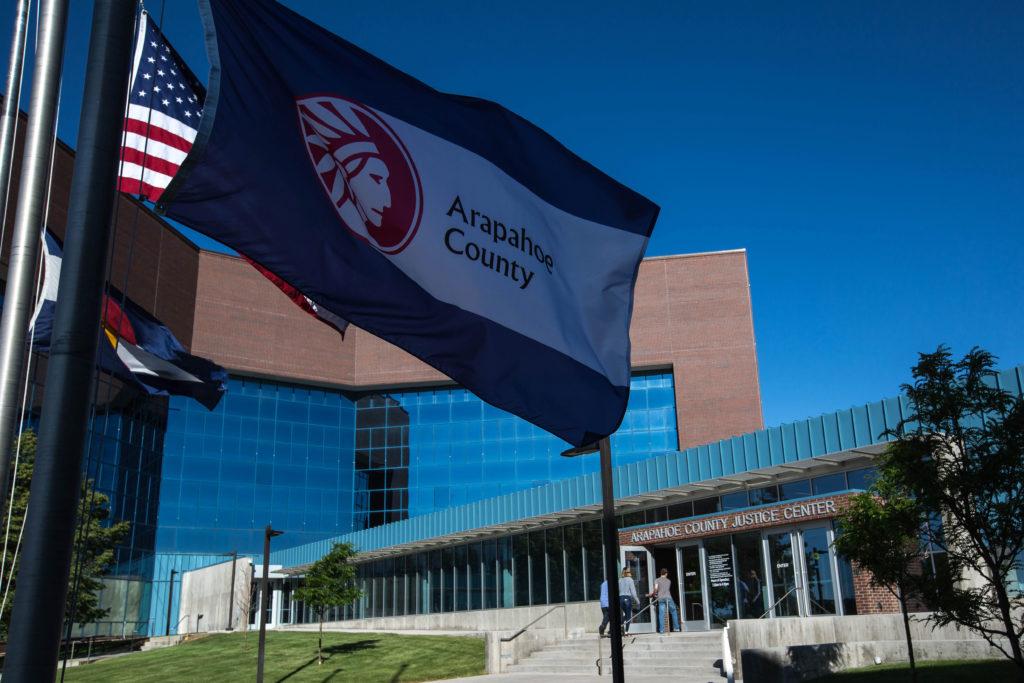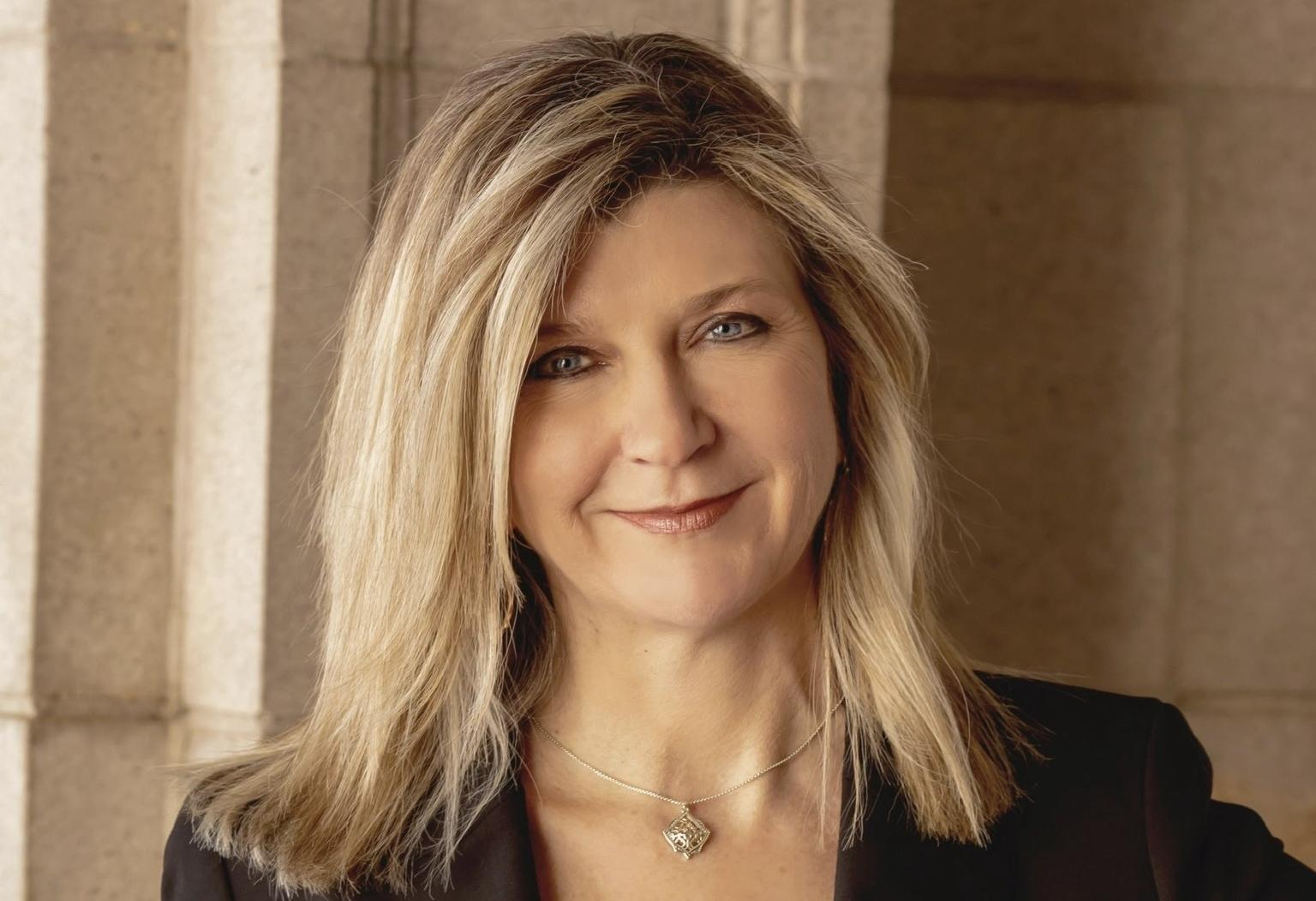
For the first time in nearly 60 years, Colorado will inaugurate a new judicial district.
The historic shift, splitting the existing 18th Judicial District into two districts, is expected to have lasting effects not only on Colorado's judiciary but potentially on its political balance as well. A legal district denotes the jurisdiction in which the legal court system operates.
Under the changes, the newly formed 23rd Judicial District will comprise Douglas, Elbert and Lincoln counties, and Arapahoe County will be its own district.
“So [now] the 18th Judicial District is the largest judicial district in the state; it has about a million people living in it,” District Court Judge Ryan Stuart, now of the 18th and soon to serve in the 23rd, told Colorado Matters Host Chandra Thomas Whitfield. “The next largest judicial district has about 750,000 people. So, it's large and it goes all the way from Colfax [Avenue] in Aurora down to the beginnings of the metro area of Colorado Springs, from Littleton east, all the way out to Lincoln County to Limon [west] and beyond. So there's a lot of different people that live in the 18th Judicial District – from really very urban in Aurora to very rural, out in Lincoln County and then the suburbs of Douglas and Elbert [counties].”
With the creation of this new district, Colorado’s judicial map may see a notable political shift, setting a distinctive political tone for the 23rd Judicial District. The 23rd is anticipated to lean conservative, which could yield the only Republican district attorney in metro Denver—depending on the results of the November 5 election.
The race features Republican candidate George Brauchler, a former district attorney for the 18th Judicial District and former attorney general candidate who lives in Douglas County. He faces Democratic candidate Karen Breslin, a University of Colorado Denver political science professor and practicing attorney with a background in environmental and land-use law who lives in Elbert County.
Judge Stuart noted that the political makeup of Arapahoe County differs significantly from that of Douglas, Elbert and Lincoln counties.
"In the last district attorney’s race, we saw a close election, with the Democrat leading in Arapahoe County and the Republican candidate gaining more support in Douglas, Elbert, and Lincoln," he said.
The new district’s creation has the potential to reconfigure the local political landscape, with Brauchler seen by many as the frontrunner. Beyond the political implications, the judicial restructuring will bring practical changes to the operation of Colorado’s court system. Currently, the 18th Judicial District is the largest in the state, serving a million residents. Judge Stuart explained that the division aims to streamline administrative services and bring judicial resources closer to the populations they serve.

“There’s one chief judge, one court administrator, and one chief probation officer for each judicial district,” Stuart explained. “Now, the 23rd will have its own administrative staff, making decisions that are more directly responsive to the needs of Douglas, Elbert and Lincoln counties.”
For residents of the 23rd Judicial District, this shift means more localized court services. For instance, specialized courts such as veterans’ treatment, sobriety, and mental health courts will now operate out of Douglas County, eliminating the need for residents to travel to Arapahoe for those services.
Behind the scenes, preparations for the new district have been extensive since 2020. From hiring a new court executive and chief probation officer to installing IT and administrative systems, the judicial branch has been working alongside state and local officials to ensure a smooth transition.
“We’re pretty much paperless now,” Judge Stuart said, “And the systems are all computerized, which adds a layer of complexity compared to the last time Colorado created a district, back in 1964.”

The legislature also passed Amendment D in 2022, clarifying how judges would be appointed to the 23rd Judicial District. The constitutional amendment approved by voters allowed Governor Polis to select judges from the 18th Judicial District to serve in the 23rd, ensuring an appropriate number of judges are appointed without forcing any of them to relocate since judges are required to live in their respective districts.
One of the core goals of this restructuring is to improve access to justice. Stuart said that the new district’s localized administration is expected to make court services more efficient and responsive to the communities it serves. Already, case assignment adjustments have reduced the wait time for contested divorce cases in Douglas County from a year to under six months.
“Having administrative staff in those courthouses who understand local needs will help ensure that decisions reflect the unique demographics and challenges of each county,” said Stuart.
As the Jan. 14, 2025, launch date nears, Judge Stuart emphasized that the response from community partners has been largely supportive. Local governments in Douglas, Elbert, and Lincoln counties have collaborated closely with the judicial branch to ensure adequate courtroom space and resources for the district’s new services.
The groundwork laid over the past four years underscores the cooperative spirit in this historic transition.
“Our mission is to uphold the rule of law and enhance public safety,” Stuart said. “With this new structure, we’re hoping to improve access to justice for everyone in Douglas, Elbert, and Lincoln counties.”
Judge Stuart emphasized that those living in the new 23rd judicial district will still deal with most of the same judges and be helped by the same clerks and support staff “dedicated to upholding the rule of law” and enhancing public safety.
“Our hope is that we'll be improving access to justice in the process.”









